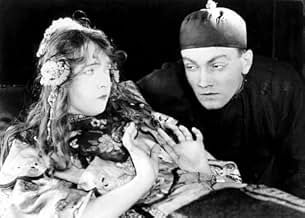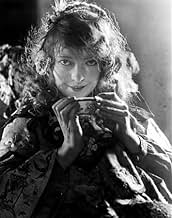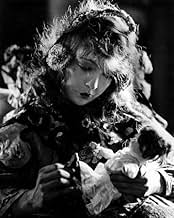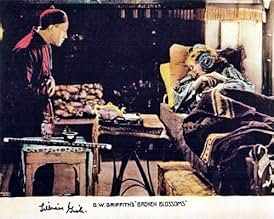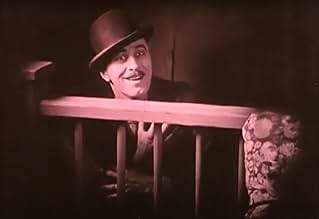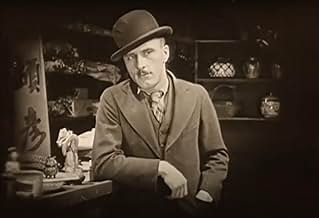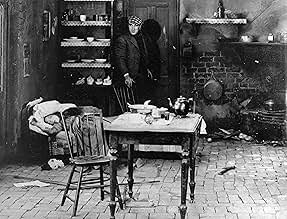AVALIAÇÃO DA IMDb
7,2/10
12 mil
SUA AVALIAÇÃO
No decadente bairro de Limehouse, em Londres, uma frágil jovem convive com a violência brutal de seu pai, um lutador de boxe, e é amparada por um sensível imigrante chinês, resultando em con... Ler tudoNo decadente bairro de Limehouse, em Londres, uma frágil jovem convive com a violência brutal de seu pai, um lutador de boxe, e é amparada por um sensível imigrante chinês, resultando em consequências trágicas.No decadente bairro de Limehouse, em Londres, uma frágil jovem convive com a violência brutal de seu pai, um lutador de boxe, e é amparada por um sensível imigrante chinês, resultando em consequências trágicas.
- Direção
- Roteiristas
- Artistas
- Prêmios
- 1 vitória no total
Lillian Gish
- Lucy - The Girl
- (as Miss Lillian Gish)
Richard Barthelmess
- Cheng Huan - The Yellow Man
- (as Mr. Richard Barthelmess)
Edward Peil Sr.
- Evil Eye
- (as Edward Peil)
Ernest Butterworth
- Secondary Role
- (não creditado)
Frederic Hamen
- Secondary Role
- (não creditado)
Wilbur Higby
- London Policeman
- (não creditado)
Man-Ching Kwan
- Buddhist Monk
- (não creditado)
Bobbie Mack
- Ringside Employee
- (não creditado)
Moy Ming
- Minor Role
- (não creditado)
Steve Murphy
- Fight Spectator
- (não creditado)
George Nichols
- Police Constable
- (não creditado)
Karla Schramm
- Burrows' Girlfriend
- (não creditado)
Bessie Wong
- Girl in China
- (não creditado)
- Direção
- Roteiristas
- Elenco e equipe completos
- Produção, bilheteria e muito mais no IMDbPro
Avaliações em destaque
This has been one of my all-time favourite films since I taped it off UK Channel 4 1st October 1988 on its second showing, one to savour and revel in every few years. There really is no choice: the only version worth seeing is this one, the Brownlow & Gill UK remaster with Louis F. Gottchalk's themes lushly orchestrated by David Cullen and Carl Davis and the Thames Silents Orchestra. From a good silent film Broken Blossoms is beautifully transformed into a work of Art, the merger of the music and Billy Bitzer's visuals can be so striking. And the intelligent tinting was gorgeous too. Over the years I've even played it just for the music sometimes!
The story? Depressed Chinese ex-missionary in London falls under the spell of listless poverty-stricken beautiful white 15 yo daughter of violent boxer. The crafty and base whites think the worst, but we know that the yellow man's love remained pure - even his worst foe says this ... I know that most people today would hoot at the acting abilities displayed: Lillian Gish's pathetic submissiveness, Donald Crisp's over the top savage expressions and Richard Barthelmess's determinedly serious inscrutability, but appreciation of silent melodramas as a genre is really required rather than simply selecting just one film to watch, such as this. And then again some people have to get over a white man playing a Chinese man whilst simultaneously approving of miscegenation in these much more enlightened times! Would these same people be bothered if a Chinese played a white man? Along with Birth of a Nation and Intolerance, this was Griffiths' best work, pinnacles of the cinema.
Utterly spellbinding poetic stuff for the enlightened, dreadful if your favourites are cgi-riddled and no older than 6 months. And don't expect a remotely happy ending! The beauty that all the world missed smote him to the heart (paraphrase).
The story? Depressed Chinese ex-missionary in London falls under the spell of listless poverty-stricken beautiful white 15 yo daughter of violent boxer. The crafty and base whites think the worst, but we know that the yellow man's love remained pure - even his worst foe says this ... I know that most people today would hoot at the acting abilities displayed: Lillian Gish's pathetic submissiveness, Donald Crisp's over the top savage expressions and Richard Barthelmess's determinedly serious inscrutability, but appreciation of silent melodramas as a genre is really required rather than simply selecting just one film to watch, such as this. And then again some people have to get over a white man playing a Chinese man whilst simultaneously approving of miscegenation in these much more enlightened times! Would these same people be bothered if a Chinese played a white man? Along with Birth of a Nation and Intolerance, this was Griffiths' best work, pinnacles of the cinema.
Utterly spellbinding poetic stuff for the enlightened, dreadful if your favourites are cgi-riddled and no older than 6 months. And don't expect a remotely happy ending! The beauty that all the world missed smote him to the heart (paraphrase).
Many people believe the best Griffith film is "Intolerance"; some stand by "Way Down East" and still others believe in "Birth of a Nation" despite all its problems. However, I think "Broken Blossoms" is the Griffith film which stands the test of time and still rings true today, over 83 years from its debut.
"Broken Blossoms" is the story of two wounded, abused, seemingly hopeless individuals who find comfort and strength in one another. The Chinaman (played by Richard Barthelmess) and little Lucy Burrows (played by Lillian Gish) are as different as night is to day, however they complement each other and give each other what the other needs; Lucy gives the Chinaman respect as a human being, he in turn gives Lucy affection and love.
What happens to the two souls is, in my opinion, one of the most heartbreaking turn of events ever filmed. The brutal treatment of Lucy by her father and the ultimate sadness of the Chinaman at the end of the film always reduce me to tears.
Those who believe that silent movies are inferior to today's craft really needs to see "Broken Blossoms" and open their hearts and minds to a world that is beyond beauty and beyond pain.
"Broken Blossoms" is the story of two wounded, abused, seemingly hopeless individuals who find comfort and strength in one another. The Chinaman (played by Richard Barthelmess) and little Lucy Burrows (played by Lillian Gish) are as different as night is to day, however they complement each other and give each other what the other needs; Lucy gives the Chinaman respect as a human being, he in turn gives Lucy affection and love.
What happens to the two souls is, in my opinion, one of the most heartbreaking turn of events ever filmed. The brutal treatment of Lucy by her father and the ultimate sadness of the Chinaman at the end of the film always reduce me to tears.
Those who believe that silent movies are inferior to today's craft really needs to see "Broken Blossoms" and open their hearts and minds to a world that is beyond beauty and beyond pain.
10drpax
"In this scarlet house of sin, does he ever hear the temple bells?" Broken Blossoms is the movie I use to introduce people to silent film who only know it from Chaplin shorts or Birth of a Nation. It is one of the most sensitive movies ever made, in my opinion, and is usually overlooked in any top 100 movie listing. I fear the oversight is due to the listers not having actually seen it.
The version I have--which is now sadly out of print--is the Thames Video version with Lillian Gish's introduction. It is also the one with the original Louis Gotshalk score, pieces of which are sometimes heard on other versions, but the impact of the full orchestral Gotshalk score is overwhelming on an already exquisite film. If you have a chance to see this version, by all means do so.
In answer to a question in another posting, the movie WAS originally tinted--it was part of the "epic poetry" attempt and was quite common with a lot of Griffith work--even back to "A Corner in Wheat".
While I am an immense Gish fan, a lot has already been said about Miss Lillian in the other comments, so I will concentrate on Dick Bartlemess as Chen Huan. The quote above accompanied by his sad look as he leans against the wall of his curio shop tell it all: wrecked youthful enthusiasm--his despair only temporarily abated by the "pipe" in the Limehouse opium dens. His dreams of youth, all packed away in his garret, are only brought out when the one thing that gives him hope that is goodness amidst all the squalor stumbles into his shop.
Only after Lucy arrives can Chen Huan allow himself to dream--to return to golden days of learning, beauty and goodness and ideals. He literally places his dreams of his lost youth on the trembling body of Lucy, but it such a pristine ideal he dare not "defame" it, or it too will disappear like all his other dreams. He must observe it from afar--almost ephemeral. He knows what Hell is like (even before he was shown the booklet by the Christian Brothers). His hell is his lost heart, his lost love. "Bits and pieces of his shattered life." Almost invariably when I find someone to share the movie with me, they are amazed how well it is made and how well it's core story stands up to today. The particulars of Chinese, Cockney and London are not the point; it is a story of hope and despair, of lovers and dreamers. A mature story for a mature audience.
I often wonder if it could be made today. As open as we think we are, I wonder if the basic story could be told again. No matter--it's been told--excellently
The version I have--which is now sadly out of print--is the Thames Video version with Lillian Gish's introduction. It is also the one with the original Louis Gotshalk score, pieces of which are sometimes heard on other versions, but the impact of the full orchestral Gotshalk score is overwhelming on an already exquisite film. If you have a chance to see this version, by all means do so.
In answer to a question in another posting, the movie WAS originally tinted--it was part of the "epic poetry" attempt and was quite common with a lot of Griffith work--even back to "A Corner in Wheat".
While I am an immense Gish fan, a lot has already been said about Miss Lillian in the other comments, so I will concentrate on Dick Bartlemess as Chen Huan. The quote above accompanied by his sad look as he leans against the wall of his curio shop tell it all: wrecked youthful enthusiasm--his despair only temporarily abated by the "pipe" in the Limehouse opium dens. His dreams of youth, all packed away in his garret, are only brought out when the one thing that gives him hope that is goodness amidst all the squalor stumbles into his shop.
Only after Lucy arrives can Chen Huan allow himself to dream--to return to golden days of learning, beauty and goodness and ideals. He literally places his dreams of his lost youth on the trembling body of Lucy, but it such a pristine ideal he dare not "defame" it, or it too will disappear like all his other dreams. He must observe it from afar--almost ephemeral. He knows what Hell is like (even before he was shown the booklet by the Christian Brothers). His hell is his lost heart, his lost love. "Bits and pieces of his shattered life." Almost invariably when I find someone to share the movie with me, they are amazed how well it is made and how well it's core story stands up to today. The particulars of Chinese, Cockney and London are not the point; it is a story of hope and despair, of lovers and dreamers. A mature story for a mature audience.
I often wonder if it could be made today. As open as we think we are, I wonder if the basic story could be told again. No matter--it's been told--excellently
BROKEN BLOSSOMS (United Artists, 1919), directed by DW Griffith, is a little film that's not only quite melodramatic, but terribly, terribly sad. In fact, it's labeled as American cinema's first tragedy. Unlike Griffith's epic masterpieces as THE BIRTH OF A NATION (1915) and INTOLERANCE (1916), each running over two hours in length, BROKEN BLOSSOMS, is in fact a simple story focusing on three central characters (Richard Barthelmess, Donald Crisp and Lillian Gish, in order of their appearance) that deals with touchy subject matters ranging from racial prejudice to child abuse, topics that are still sensitive issues even today.
Based on Thomas Burke's "The Chink and the Child," the story begins in China where Cheng Haun, also known as The Yellow Man (Richard Barthelmess), a young idealist, coming to the London slums where he hopes to convert rude Westerners to the gospel of the gentle Buddha. Instead he makes his living by running a curio shop. Battling Burrows (Donald Crisp), a small-time prizefighter by which the title cards describes him as "an abysmal brute, a gorilla from the jungles of East London," living with his illegitimate daughter, Lucy (Lillian Gish), a tragic figure who waits on him hand and foot. So terrified of him, whenever her father commands her to smile, the frightful Lucy simply pushes up the corners of her mouth with her fingers. After one of her frequent beatings, one night Lucy stumbles out of the house, walking to the Chinese curio shop where she faints in front of Cheng Haun's door. Cheng Haun finds bruised girl and takes her in, tending to her wounds. While under his care, Lucy, called "White Blossom" by the Chinaman, is treated with the kindness and sensitivity she's never had. When Battling Burrows is told of his daughter's whereabouts, he sets out to get "the dirty Chink" and to "learn them both."
In spite of its old-fashioned screenplay with the use of a white actor (Barthelmess) in an Oriental role, BROKEN BLOSSOMS is still timely. Lillian Gish gives an Academy Award winning performance playing the 15-year-old Lucy Burrows. Academy Award meaning that if the best actress award had existed in 1919, Gish would definitely have been recognized with that honor for her achievement in handling a difficult assignment in a believable manner. For famous climatic "closet scene" in which Gish's character, Lucy, locks herself in to avoid another brutal whipping by her father, is as realistic as any performance could ever be. As Burrows breaks the door apart, piece by piece, with an ax, the terrified Lucy, with no place to run nor hide, goes into a frenzy like an trapped animal. Being a silent film, one can virtually hear the screaming coming through the screen. For this scene alone, Gish has proved her capability as one of the finest actresses in this history of film.
With such a depressing theme, BROKEN BLOSSOMS reportedly was a surprise hit upon its release. A very atypical Griffith production to say the least. The sole reason for its success is how Lucy is portrayed on screen, ranging from her tragically sad face and shoulder-length hair adding to the believability to her character, knowing full well that Gish was a young woman in her early twenties enacting the role of a 12 to 15 year-old child. Donald Crisp, the most unlikely candidate in getting any Father's Day cards after this performance, would appear as lovable fathers in numerous family films of the 1940s, as well as earning an Academy Award as Best Supporting Actor for HOW GREEN WAS MY VALLEY (20th-Fox, 1941). It was fortunate to Crisp's credit that his performance of the unsympathetic prizefighter with the colley-flower ear didn't ruin his future in films. Barthelmess, on the other hand, offers a sensitive portrayal of a caring and peaceful Chinaman against the wicked ways of the world. This is the film that elevated Barthelmess to the rank as top leading man through much of the 1920s, one opposite Gish again under Griffith's direction in another classic tale, WAY DOWN EAST (1920).
With a limited amount of actors listed in the cast, the supporting players consists of Arthur Howard as the fighting manager; Edward Piel as Evil Eye; Norman "Kid McCoy" Selby as a prizefighter; and George Nicholas as the Policeman. And was that Roscoe Karns as the reporter in the final portion of the story?
BROKEN BLOSSOMS was one of the twelve selected silent films that was broadcast on public television's 1975 presentation of THE SILENT YEARS, as hosted by Lillian Gish. Prior to its presentation, Gish discussed how the movie came about, and did so again practically word for word in the 1988 Thames video presentation prior to the feature presentation scored by Carl Davis. Over later years, BROKEN BLOSSOMS had been released under numerous video distributors with different music scores and different lengths. The Thames, Republic Home Video (organ scored) and KINO Video collections (with pleasing orchestration) comes closer to the original length of 90 to 95 minutes, restoring the opening segment and plot development (missing from "The Silent Years" broadcast) set in China involving Cheng before coming to the Limehouse district of England. The restored KINO version had been the print used for Turner Classic Movies' "Silent Sunday Nights" for quite some time before converting to new but inappropriate underscoring.
BROKEN BLOSSOMS has become the kind of movie in which success comes only once. This tragic tale was remade in England (with sound) in 1936, but little is known of it today, except for the fact that Griffith was originally slated to be the director. While the 1919 original may not be the sort of movie for all tastes, it's one that will be long remembered, thanks to the remarkable direction by the master, D.W. Griffith, and sensitive portrayals of Gish and Barthelmess combined. (***)
Based on Thomas Burke's "The Chink and the Child," the story begins in China where Cheng Haun, also known as The Yellow Man (Richard Barthelmess), a young idealist, coming to the London slums where he hopes to convert rude Westerners to the gospel of the gentle Buddha. Instead he makes his living by running a curio shop. Battling Burrows (Donald Crisp), a small-time prizefighter by which the title cards describes him as "an abysmal brute, a gorilla from the jungles of East London," living with his illegitimate daughter, Lucy (Lillian Gish), a tragic figure who waits on him hand and foot. So terrified of him, whenever her father commands her to smile, the frightful Lucy simply pushes up the corners of her mouth with her fingers. After one of her frequent beatings, one night Lucy stumbles out of the house, walking to the Chinese curio shop where she faints in front of Cheng Haun's door. Cheng Haun finds bruised girl and takes her in, tending to her wounds. While under his care, Lucy, called "White Blossom" by the Chinaman, is treated with the kindness and sensitivity she's never had. When Battling Burrows is told of his daughter's whereabouts, he sets out to get "the dirty Chink" and to "learn them both."
In spite of its old-fashioned screenplay with the use of a white actor (Barthelmess) in an Oriental role, BROKEN BLOSSOMS is still timely. Lillian Gish gives an Academy Award winning performance playing the 15-year-old Lucy Burrows. Academy Award meaning that if the best actress award had existed in 1919, Gish would definitely have been recognized with that honor for her achievement in handling a difficult assignment in a believable manner. For famous climatic "closet scene" in which Gish's character, Lucy, locks herself in to avoid another brutal whipping by her father, is as realistic as any performance could ever be. As Burrows breaks the door apart, piece by piece, with an ax, the terrified Lucy, with no place to run nor hide, goes into a frenzy like an trapped animal. Being a silent film, one can virtually hear the screaming coming through the screen. For this scene alone, Gish has proved her capability as one of the finest actresses in this history of film.
With such a depressing theme, BROKEN BLOSSOMS reportedly was a surprise hit upon its release. A very atypical Griffith production to say the least. The sole reason for its success is how Lucy is portrayed on screen, ranging from her tragically sad face and shoulder-length hair adding to the believability to her character, knowing full well that Gish was a young woman in her early twenties enacting the role of a 12 to 15 year-old child. Donald Crisp, the most unlikely candidate in getting any Father's Day cards after this performance, would appear as lovable fathers in numerous family films of the 1940s, as well as earning an Academy Award as Best Supporting Actor for HOW GREEN WAS MY VALLEY (20th-Fox, 1941). It was fortunate to Crisp's credit that his performance of the unsympathetic prizefighter with the colley-flower ear didn't ruin his future in films. Barthelmess, on the other hand, offers a sensitive portrayal of a caring and peaceful Chinaman against the wicked ways of the world. This is the film that elevated Barthelmess to the rank as top leading man through much of the 1920s, one opposite Gish again under Griffith's direction in another classic tale, WAY DOWN EAST (1920).
With a limited amount of actors listed in the cast, the supporting players consists of Arthur Howard as the fighting manager; Edward Piel as Evil Eye; Norman "Kid McCoy" Selby as a prizefighter; and George Nicholas as the Policeman. And was that Roscoe Karns as the reporter in the final portion of the story?
BROKEN BLOSSOMS was one of the twelve selected silent films that was broadcast on public television's 1975 presentation of THE SILENT YEARS, as hosted by Lillian Gish. Prior to its presentation, Gish discussed how the movie came about, and did so again practically word for word in the 1988 Thames video presentation prior to the feature presentation scored by Carl Davis. Over later years, BROKEN BLOSSOMS had been released under numerous video distributors with different music scores and different lengths. The Thames, Republic Home Video (organ scored) and KINO Video collections (with pleasing orchestration) comes closer to the original length of 90 to 95 minutes, restoring the opening segment and plot development (missing from "The Silent Years" broadcast) set in China involving Cheng before coming to the Limehouse district of England. The restored KINO version had been the print used for Turner Classic Movies' "Silent Sunday Nights" for quite some time before converting to new but inappropriate underscoring.
BROKEN BLOSSOMS has become the kind of movie in which success comes only once. This tragic tale was remade in England (with sound) in 1936, but little is known of it today, except for the fact that Griffith was originally slated to be the director. While the 1919 original may not be the sort of movie for all tastes, it's one that will be long remembered, thanks to the remarkable direction by the master, D.W. Griffith, and sensitive portrayals of Gish and Barthelmess combined. (***)
Turning away from the epic scale of his quintessential movies, Birth of a Nation and Intolerance, director D. W. Griffith turned to an altogether smaller and more intimate story in 1919. Instead of telling a vast tale spanning millennia and featuring a cast of thousands, he focused his attention on the tragic interplay between just three people: a Chinese immigrant to London (Richard Barthelmess), a young waif with whom he develops a brief but touching relationship (Lillian Gish), and her brutish father (Donald Crisp). It's been suggested this was another sop by Griffith to those who had accused him of being a racist due to the content of BoaN although, while Bathelmess' Chinese immigrant is a completely sympathetic character, the thoughtless racist attitudes that were commonplace back then are still very much in evidence. For example, the movie's secondary title is 'The Yellow Man and the Girl', and during a tender love scene, Gish's Lucy says to him: "Why are you so good to me, Chinky?" which tends to break the mood just a tad.
Griffith's trademark use of tiny gestures and changes of expression is very much in evidence in the performances of Barthelmess and Gish, while Crisp, who is barely recognisable as the kindly patriarch of countless 40s flicks, paints a broader picture of the loutish Battling Burrows. This counterpoint between screen father and daughter works well, stressing the fragile nature of Gish's waif, while emphasising the misery of her dependence upon her uncouth father. Barthelmess, meanwhile spends much of his time gazing miserably at the bleakness of the world around him as his character tries to lose himself in a haze of opium after failing to spread the word of peace. Chen seems to be moving through a dream for much of the film, passively allowing himself to be buffered by the world, and only shaking himself from his torpor when Lucy almost literally falls at his feet. This scene, in which Lucy and Chen first meet, is wonderfully atmospheric and beautifully framed and is, strangely, the prelude to the film's weakest segment. Having set the scene beautifully and created a great atmosphere, Griffith allows proceedings to slip into melodrama. While Battling's discovery of Lucy's new friendship is melodrama of the most Victorian kind, the relationship between the two potential lovers goes nowhere which, while perhaps true to the film's title, leaves the story struggling for momentum. Lucy enjoys a few hours of being spoiled by Chen the first time in her life that she ever has been, but there is very little interaction between them, and Chen's apparent consideration of forcing himself on Lucy before finally kissing her sleeve really doesn't ring true at all. In fact, the scene looks as if it were added almost as an afterthought to inject a little suspense.
Nevertheless, BROKEN BLOSSOMS is another example of one of the world's greatest directors operating at somewhere close to the top of his game. In another few years, Griffith's Victorian viewpoint would look horribly outdated to the Roaring Twenties crowd. There were still more classics to come, but in terms of technical and creative accomplishment he had already peaked.
Griffith's trademark use of tiny gestures and changes of expression is very much in evidence in the performances of Barthelmess and Gish, while Crisp, who is barely recognisable as the kindly patriarch of countless 40s flicks, paints a broader picture of the loutish Battling Burrows. This counterpoint between screen father and daughter works well, stressing the fragile nature of Gish's waif, while emphasising the misery of her dependence upon her uncouth father. Barthelmess, meanwhile spends much of his time gazing miserably at the bleakness of the world around him as his character tries to lose himself in a haze of opium after failing to spread the word of peace. Chen seems to be moving through a dream for much of the film, passively allowing himself to be buffered by the world, and only shaking himself from his torpor when Lucy almost literally falls at his feet. This scene, in which Lucy and Chen first meet, is wonderfully atmospheric and beautifully framed and is, strangely, the prelude to the film's weakest segment. Having set the scene beautifully and created a great atmosphere, Griffith allows proceedings to slip into melodrama. While Battling's discovery of Lucy's new friendship is melodrama of the most Victorian kind, the relationship between the two potential lovers goes nowhere which, while perhaps true to the film's title, leaves the story struggling for momentum. Lucy enjoys a few hours of being spoiled by Chen the first time in her life that she ever has been, but there is very little interaction between them, and Chen's apparent consideration of forcing himself on Lucy before finally kissing her sleeve really doesn't ring true at all. In fact, the scene looks as if it were added almost as an afterthought to inject a little suspense.
Nevertheless, BROKEN BLOSSOMS is another example of one of the world's greatest directors operating at somewhere close to the top of his game. In another few years, Griffith's Victorian viewpoint would look horribly outdated to the Roaring Twenties crowd. There were still more classics to come, but in terms of technical and creative accomplishment he had already peaked.
Você sabia?
- CuriosidadesThe film was produced by D.W. Griffith for Adolph Zukor's Artcraft company, a subsidiary of Paramount Pictures. However, when Griffith delivered the final print of the film to Zukor, the producer was outraged. "How dare you deliver such a terrible film to me!" Zukor raged. "Everybody in the picture dies!" Infuriated, Griffith left Zukor's office and returned the next day with $250,000 in cash, which he threw on Zukor's desk. "Here," Griffith shouted, "If you don't want the picture, I'll buy it back from you." Zukor accepted the offer, thus making this the first film released by United Artists, the production company formed in 1919 by Mary Pickford, Charles Chaplin, Douglas Fairbanks, and Griffith. It was a remarkably successful film, both critically and at the box office.
- Erros de gravaçãoThe intertitles state, "The Buddha says, 'What thou dost not want others to do thee, do thou not to others.'" It was actually not the Buddha but Confucius' teaching.
- Citações
Lucy Burrows: Don't do it, Daddy! You'll hit me once too often - and then they'll - they'll hang yer!
- ConexõesFeatured in The Philco Television Playhouse: The Birth of the Movies (1951)
Principais escolhas
Faça login para avaliar e ver a lista de recomendações personalizadas
- How long is Broken Blossoms?Fornecido pela Alexa
Detalhes
- Data de lançamento
- País de origem
- Idioma
- Também conhecido como
- Broken Blossoms
- Locações de filme
- Empresa de produção
- Consulte mais créditos da empresa na IMDbPro
Bilheteria
- Orçamento
- US$ 88.000 (estimativa)
- Tempo de duração
- 1 h 30 min(90 min)
- Mixagem de som
- Proporção
- 1.33 : 1
Contribua para esta página
Sugerir uma alteração ou adicionar conteúdo ausente

